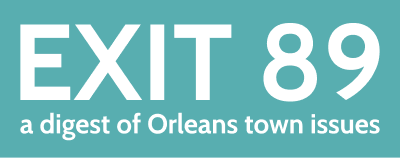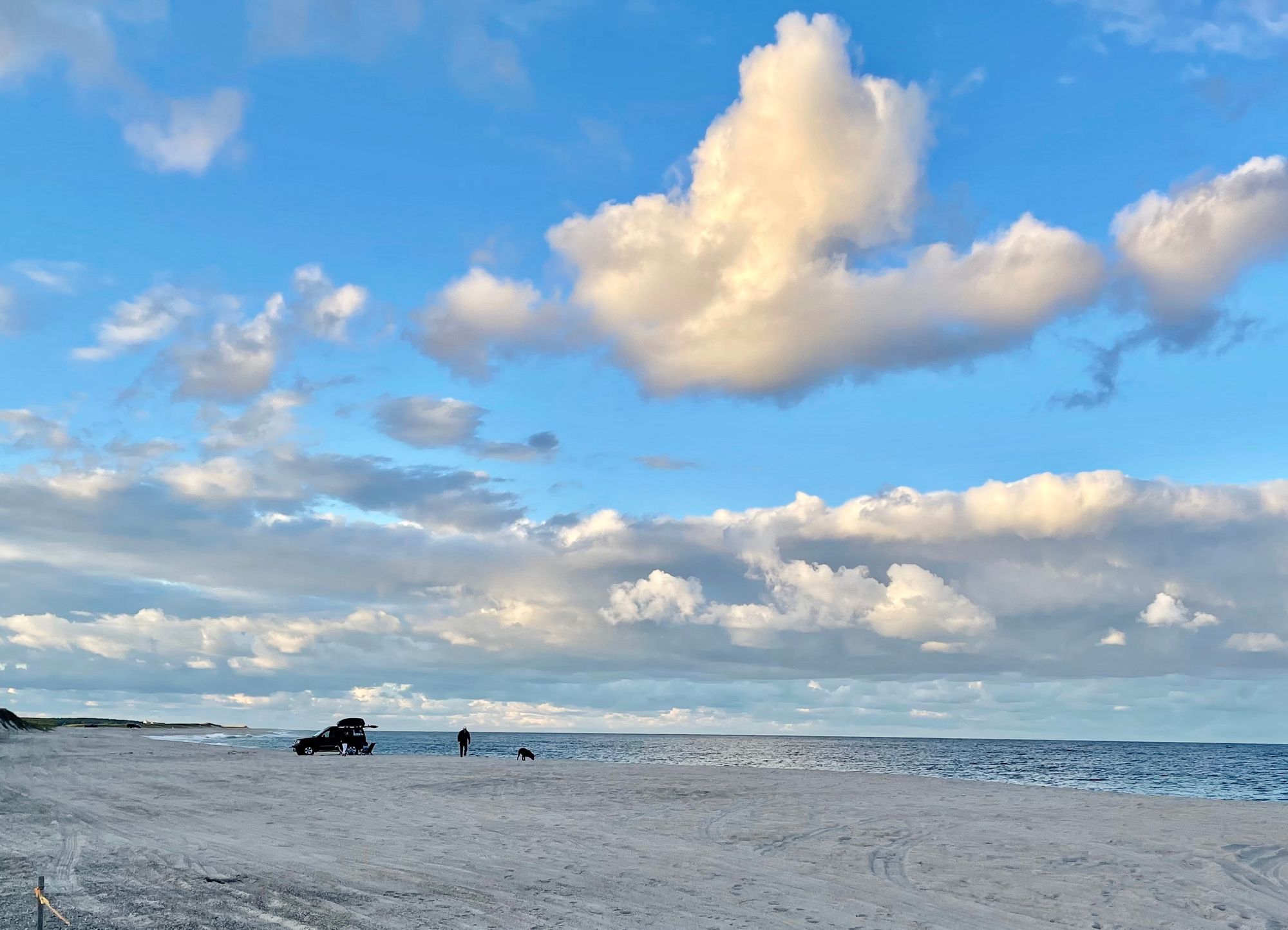It’s that time of year . . .
Orleans Town Meeting is a little over a week away. This meeting’s biggest questions (like most Town Meeting questions) are about money. Your money. Since we live in a democracy, you have the opportunity to vote on how it will be spent.
On Monday, May 9, at 6 PM, in the Nauset Regional Middle School gym, Orleans voters will consider over eighty warrant articles in a combined Annual and Special Town Meeting. Some big-ticket issues are up for our approval — including additional financing for sewering and protecting water quality, water service infrastructure upgrades, affordable housing, and the $40.67 million annual operating budget.
We hope you plan to attend. If not, EXIT 89 respectfully encourages you to reconsider. It’s a twice-a-year opportunity, and rare privilege, to participate in this time-honored New England tradition. It’s your chance to help shape the future of Orleans. Attendees at Town Meeting will make decisions that impact our daily life and the lives of generations to come. And now, with those electronic voting gizmos, the whole thing goes a lot quicker.
There will be childcare for kids ages three and older starting at 5:45. Arrive early if you want some time to get settled. Consider bringing water, snacks, and maybe a buddy — someone who’s been curious about Town Meeting but has never attended. Warrants are available online (click here) and printed copies can be obtained in the foyer of Town Hall.
Some issues that stand out:
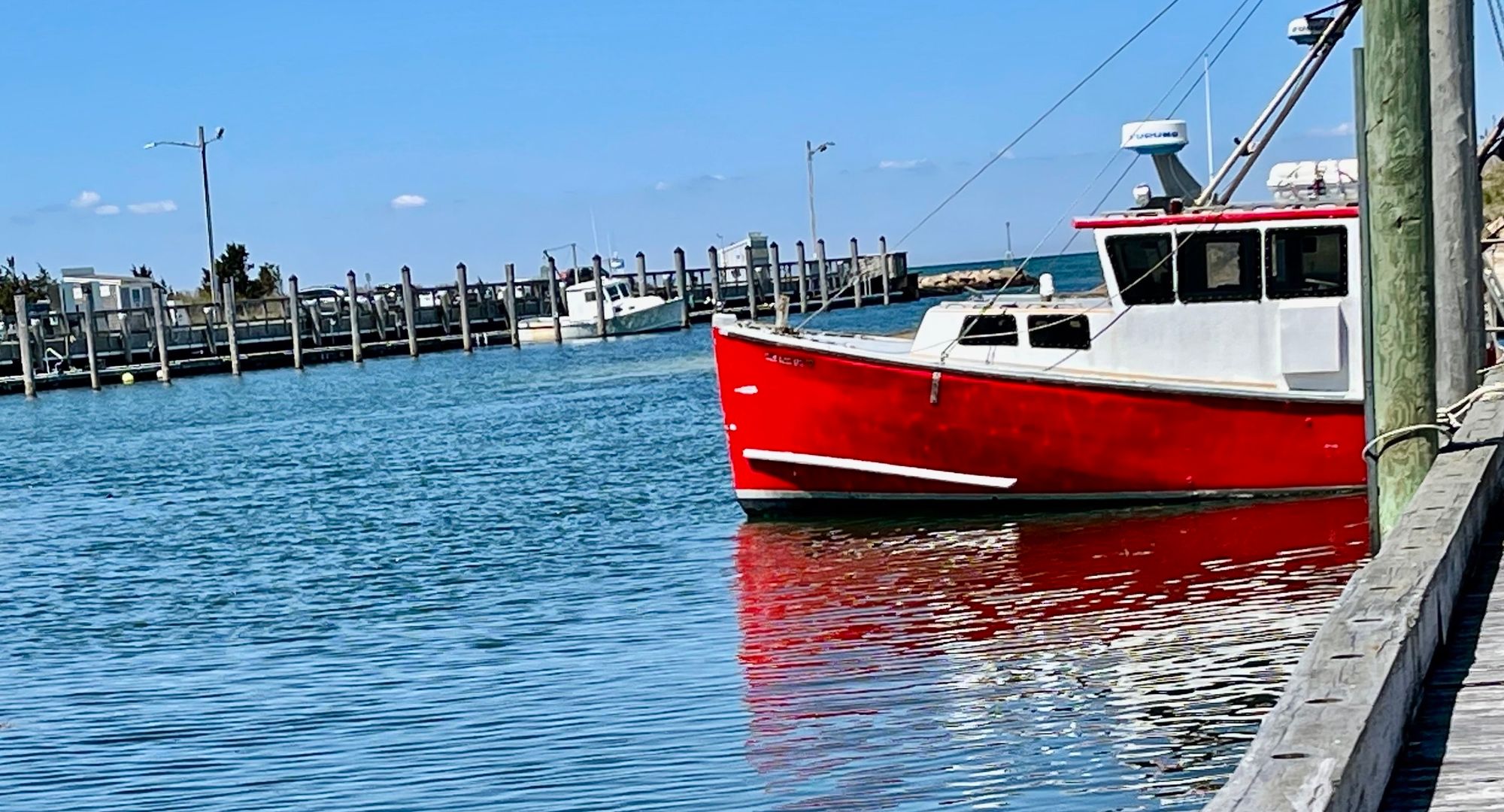
Articles 8-12: Enterprise Funds
Looking to get a clearer picture of the income and expenses for several town operations, Orleans established five new “Enterprise Funds” last year. Two of these town services are self-sustaining (beaches and moorings) while Rock Harbor and the transfer station require subsidies from the town budget. Sewer operations will be funded by user fees and by the Wastewater Stabilization Fund.
Articles 8-12 ask voters to fund these five operations — beaches, moorings, sewers, Rock Harbor Boat Basin, and the transfer station — and approve fee increases for beach stickers, recreational moorings, and the transfer station. The Select Board and Finance Committee voted unanimously in favor of adopting all five Enterprise Fund budgets and fee schedules. Sewers require a two-thirds vote in order to spend Stabilization Fund money, but the others need a simple majority vote in order to pass.
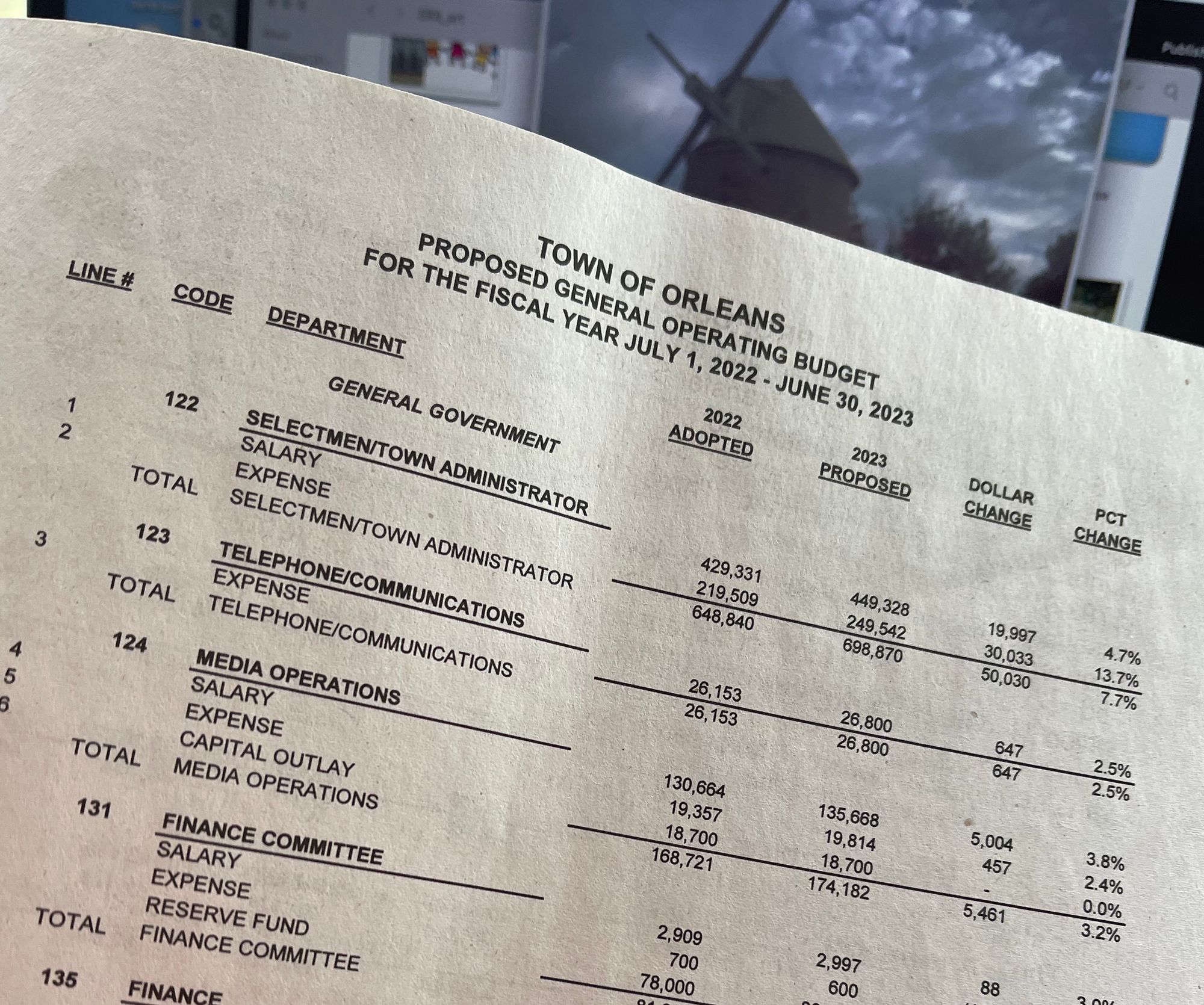
Article 13: Town / School Budget
The town budget is a work of collaborative effort — studies, meetings, hearings, surveys, previous Town Meetings, and departmental reviews all play a role in the decision making process. Article 13 asks voters for $40.67 million to fund our town government in FY23. Of this amount, $35.427 million will be paid with revenue from property taxes and $5.2 million will be raised by various user fees and dedicated funds.
Salaries, benefits and pensions of town employees make up the biggest share of our budget: $17.738 million or 43.6 percent. Education comes next at 23 percent. Notably, debt expenses weigh in at 13 percent. (That’s 79 percent of the annual budget right there.) The Town of Orleans Finance Committee, in its annual report and letter to town, printed in the Warrant, looks at trends and offers thoughts to ponder, including a discussion of Orleans’ relationship with debt, a subject EXIT 89 will address at the end of this issue.
This year’s town budget increased unexpectedly due to two developments. After John Kelly, our Town Administrator, asked each department manager to submit a five-year “look-ahead” at growth and support needed, the Select Board reached a decision to add three new full-time positions to town government — a second mechanic, an assistant facilities manager, and an assistant town planner — at an estimated cost of $285,000 including benefits. The second unanticipated increase is due to Orleans’ share of the annual Nauset School District budget coming in higher than expected. Rising operating costs at both the high school and middle school — salaries, wages, facilities, etc. — caused the district budget to increase. And district-wide fluctuations in enrollment leave Orleans with a greater portion of the bill. Last year, Orleans was responsible for 19.08 percent of the district budget. In FY23, that share has grown to 21.07 percent, which results in a $627,032 increase for our town.
The Select Board and Finance Committee both unanimously support Article 13. If voters approve the budget at Town Meeting, they will need to vote again at the polls on May 17 to approve Ballot Question #1, the Proposition 2 ½ general override to fund that additional portion of the Town’s share of the Nauset School District assessment.
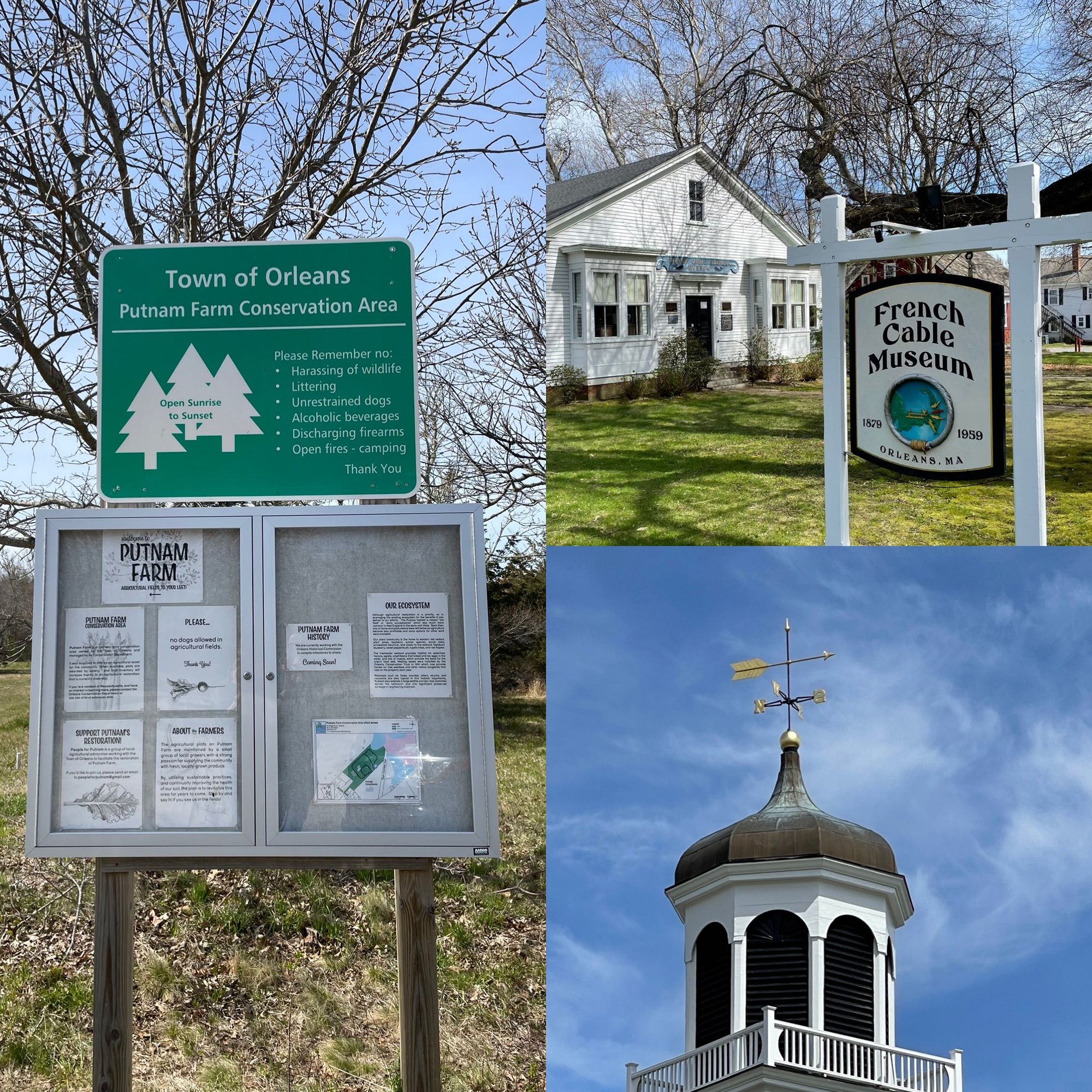
Article 15: Community Preservation
The Community Preservation Committee (CPC) has nine appointed members who are tasked with studying the preservation needs of Orleans and stewarding a wide-array of CPC projects, from the protection of open spaces and historic structures to the support of community housing. This year, voters are asked to approve $1.39 million in expenditures for 14 different projects, including restoration work on the wiring and windows at the French Cable Museum, repairs made last summer to the steeple and weathervane at the Federated Church in East Orleans, improvements to conservation and infrastructure at Putnam Farm, and the creation of a new bike path from Baker’s Pond and Overland Way to local recreation areas. The Select Board and Finance Committee both unanimously support Article 15. It requires a simple majority vote to pass.
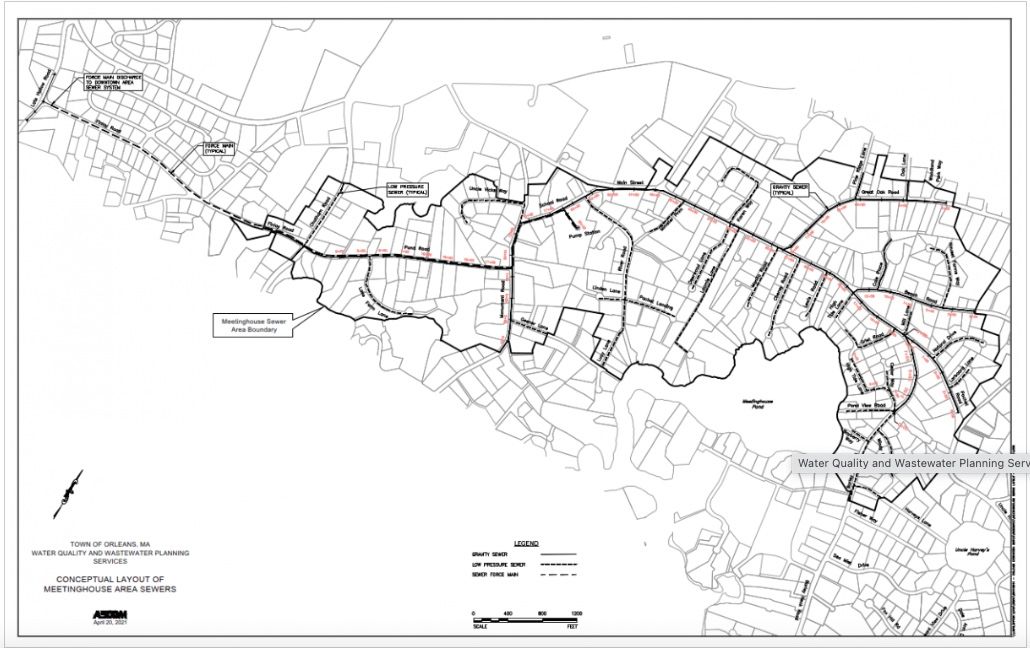
Articles 18 + 19: Sewers
Orleans voters have already committed to sewering, but not without some dramatic twists and turns in our wastewater saga. For those of you who don’t know, here’s a quick recap: In 2011, a comprehensive plan was approved that called for the sewering of 60 percent of Orleans, but voters backpedaled at subsequent Town Meetings, once failing to pass a new plan by only six votes. There was a basic lack of understanding among residents as to why we were taking on such an expensive and complex project. Finally, in 2015, voters approved a plan to sewer 23 percent of the town, beginning with downtown Orleans and then Meetinghouse Pond. These are Phases 1 and 2 of our Wastewater Master Plan.
Why are we doing it? The nitrogen levels in many of our ponds and waterways are too high, and not in compliance with state requirements. Sewers will address this, enhancing and preserving some of our town’s most cherished and valuable natural resources. If you want to know more, check out the Wastewater Infrastructure section of the Orleans Town website, which provides a remarkable level of detail. (We even have a “Sewer Ombudsman,” Reggie Donoghue, ready and waiting to address all your concerns and questions.)
Phase 1 — which includes the downtown district and the operation of our new wastewater treatment facility — will be completed this coming fall. Articles 18 + 19 address what comes next: how to assess and charge property owners who will connect into the sewer, and funding for Phase 2, which connects the 481 properties in the designated Meetinghouse area to the sewer, to address the nitrogen levels there.
Article 18 asks voters to adopt a new Sewer Assessment General Bylaw, which defines how the town will assess and charge the Town’s taxpayers and property owners for the cost of the wastewater treatment facility, effluent disposal, wastewater collection system and pumping stations for the sewer Project Phases 1 and 2, and potentially any that come afterwards. The bylaw further defines how those properties that are connected to the sewer will be charged for the “betterment” of their properties. Theoretically, properties with sewering are more valuable. Commercial enterprises can serve more customers and private residences can have more bedrooms.
How will they be charged? Properties will be assessed by a measurement of “Sewer Units” determined by a property’s water usage over the previous three years. These owners will then be charged a “betterment” fee, which can be paid off as a lump sum, or can be financed over time (up to thirty years). Betterment fees for new sewers will show up as a new line on the owner’s property tax bills. (These fees do NOT include ongoing usage fees, or other connection costs, for which property owners are responsible.) After the initial assessment, if a property owner develops their parcel, builds a new house, adds an accessory dwelling or more bedrooms to an existing one — any expansion that creates more demands on the sewer system — they will be charged an additional “privilege fee.” All eligible Select Board members voted to recommend this assessment plan. The Finance Committee also voted in favor (6-0) with 2 abstentions. If a sewer assessment bylaw—sometimes called a “betterment bylaw”— is not passed, all construction costs for Phases 1 and 2 would be paid by property taxes. A simple majority is required for approval.
Article 19 is a vote to approve the roughly $33 million needed for Phase 2 of the Town’s sewer project — the Meetinghouse Pond Area Collection System and Pumping Station Project.
Who will pay for the Meetinghouse Pond sewers? We all will, to some degree. A ratio of responsibility was decided on March 30, when the Orleans Select Board voted that 80 percent of sewer project costs would be paid by property taxes. The remaining 20 percent will be covered by the property owners whose parcels connect to the new system and will benefit directly from it. All properties within the defined area — whether they are residential, commercial, developed or undeveloped — are required to connect.
What if this doesn’t pass? This vote is very important. Meetinghouse Pond, whose water quality impacts all waters of the Pleasant Bay system, is the Town’s most impaired saltwater pond due to high nitrogen levels from surrounding property septic systems. Sewering is the only solution to prevent further degradation.
Should Article 19 fail to pass, we risk further water quality degradation, and we risk losing access to significant State funding, our place in the State’s project queue, and access to a 0% interest rate, as well as potential Federal Infrastructure funding for shovel-ready projects. As the Orleans Pond Coalition explains, “Each time we move forward with feasibility, design or construction of our wastewater system, we keep the good faith and financial benefits that have resulted in Orleans receiving zero interest loans, matching funds and grants to do what we must do anyway.”
The Select Board voted unanimously to recommend this article. The Finance Committee voted in favor (6-0) with 1 abstention. This article proposes a debt exclusion and requires a two-thirds vote to pass (because of the funding strategy).
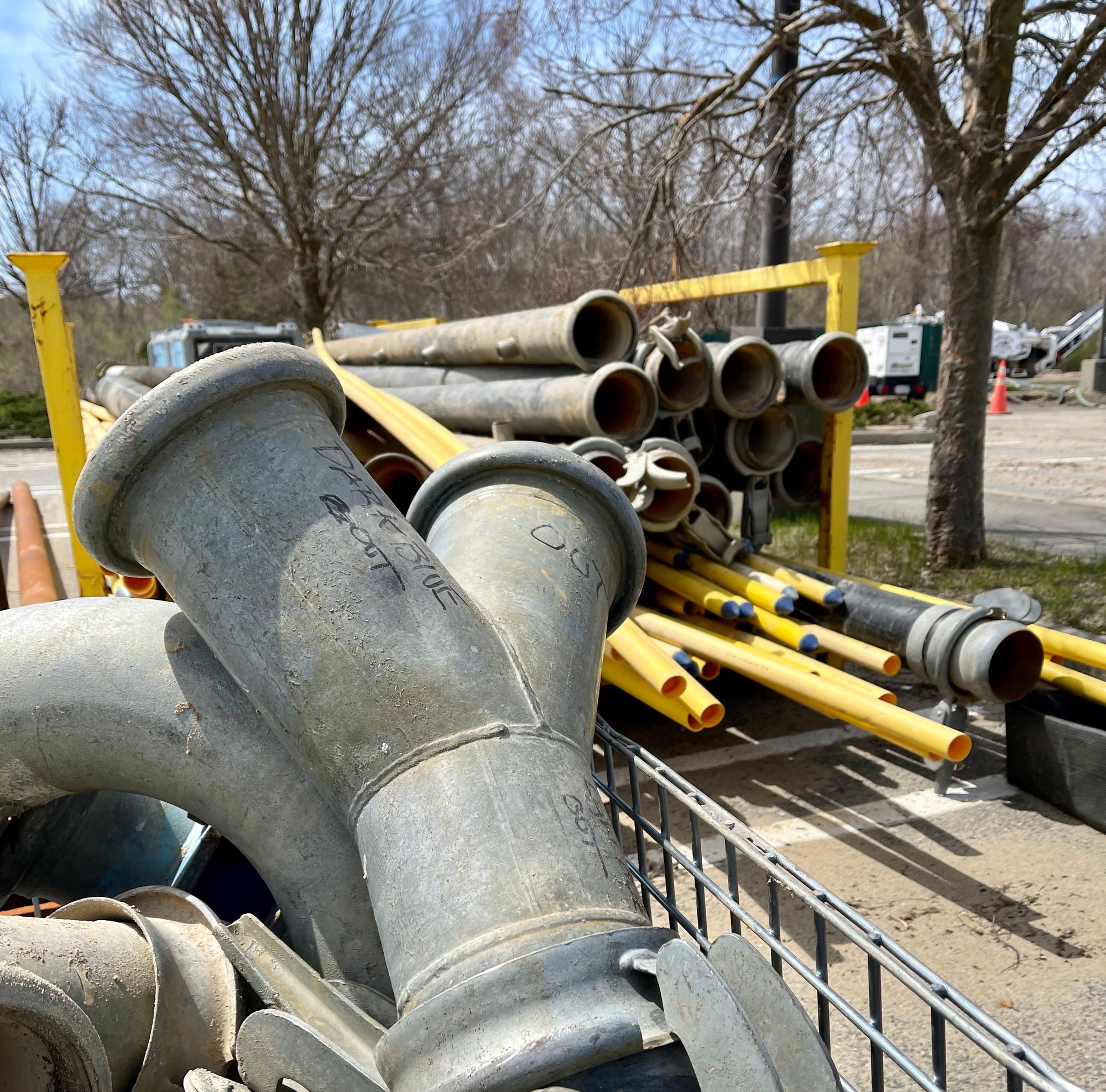
Articles 20-22: Water Pipes
These three articles are projects related to existing water service and drainage around Meetinghouse Pond — and will be coordinated with the sewer construction work. Article 20 asks voters to approve $500,000 for stormwater system improvements. Article 21 asks for $1.88 million to replace aging water mains in the construction area, and Article 22 asks for $500,000 to replace the sixty-year-old water service lines in the areas that will be sewered. All three articles were given unanimous support by both the Select Board and Finance Committee, and all require a three-quarter vote to pass because none of them had been included in last year’s Capital Improvements Plan.

Article 39: Human Services in Orleans
Every year, Orleans supports nonprofits that provide citizens of all ages with crucial, life-enhancing services and programs. This article asks that funds be given to nineteen agencies listed in the warrant — ranging from the Alzheimer’s Family Support Center ($11,000) and the Orleans After School Activities Program ($30,000) to Outer Cape Health Services ($20,000) and the Homeless Prevention Council ($15,000). The total amount proposed is $150,350 — unanimously recommended by the Select Board and Finance Committee. It requires a simple majority vote to pass.

Articles 54-64: Home Rule Charter
The term “home rule” refers to the limited autonomy granted a local jurisdiction, like the Town of Orleans, allowing us to create our own bylaws and rules within our borders. Our Town Charter is effectively our Constitution.
In 1987, when it was established, the Town Charter sought to meet six goals: 1) to preserve the best of the past and our traditional government; 2) to enhance coordination and effective management of the town; 3) to ensure accountability; 4) to provide improvements in administration, budget-making and planning; 5) to promote citizen participation and volunteer efforts; and 6) to promote transparency in government.
Over the past year, the Charter Review Committee of seven volunteers has met once or twice a month to study ways to update and streamline our Town Charter. While this important work continues, the first batch of twelve recommendations from the committee has been brought forward. Here are some noteworthy ones:
Article 54 changes the language in the Charter’s preamble, including this addition: “We also acknowledge, with respect, that we are inhabiting the traditional lands of the Nauset and Wôpanâak (Wampanoag) peoples who have always existed here. We value their roles as past, present, and future guardians of this land.” Article 61 reduces the time Town Meeting attendees may speak on an article from five minutes to two minutes. Article 62 would lower quorum from 200 to 100, and prohibit any challenge of quorum after the meeting begins. This means that once the Moderator has declared a quorum is present and has called Town Meeting to order, the quorum necessary to continue the meeting would be zero. So, if most voters – or even all of them — leave a Town Meeting, it would continue.
Each of the twelve changes was recommended unanimously by the Select Board. Since there are no fiscal implications to eleven of these, the Finance Committee did not vote or comment, but it is worth noting that it voted unanimously against Article 62 — the quorum change. A simple majority vote is required for each of these to pass.

Article 74: Mill Pond Sewers?
A citizen’s group, the Mill Pond Preservation Association, proposed by petition that the pond be evaluated for sewering due to its nitrogen overload and deteriorating condition — which has caused the failure of private aquaculture efforts there. Short term solutions like permeable reactive barriers or dredging are either technically impossible, environmentally risky, or too expensive. The Finance Committee did not vote on the petition because there is no fiscal implication in the Article as written. The Select Board voted 3 to 2 not to support. (Curious about the procedure for petitioning an article to Town Meeting? Click here.) A simple majority vote at Town Meeting is required to pass.

DEBT: A LOVE STORY?
Orleans loves debt, apparently. Over the past decade, we have acquired more, per capita, than any other town on the Cape — and more than almost any other town in Massachusetts. As the Orleans Finance Committee describes in its annual letter to the Town, our debt service, or the principal and interest that we pay for money we’ve borrowed, tripled from $2.4 million in 2016 to $7.3 million in 2020. (Click here to see our "debt book," or outstanding projected debt as of June, 2022.) Of the 351 towns in Massachusetts, Orleans currently ranks #2 in percentage of annual budget spent on debt and #1 in debt service per capita (or $1,153 per person).
Number one in debt service? A dubious honor, to be sure — brought about, in part, by decades of voter reluctance to commit to major but necessary infrastructure projects; as a result, the current residents of Orleans are left holding the bag.
We need to move intentionally into the future, leaving our town as healthy and vibrant as possible for generations to come. We have entered an exuberant period of dreaming and planning in Orleans, which is exciting to witness. There are currently studies underway for a new fire station, community center, library, affordable housing, economic vitality and a new proposed study (Article 50) of the economic value of our “blue economy” — or the sustainable use of ocean resources for economic growth and jobs.
How do we prioritize, and then pay for, the improvements we want? Property taxes will provide 74 percent of the town revenue needed in FY23. Our tax rate in Orleans is rising, but remains comparatively low — only four Cape Cod towns have a lower rate — but, even so, many longtime residents struggle to pay their tax bills. While the average home value in Orleans is rapidly approaching a million dollars, the average per capita income of our 6,307 residents in 2016-2020 (in 2020 dollars) was $56,907 and the median household income in 2016-2020 (in 2020 dollars) was $77,273.
Other towns on the Cape and islands are dealing with this disparity too. With so many studies, proposals and dreams on the table, how do we optimize our town’s future without bankrupting its future residents? Stay tuned: This summer EXIT 89 will be grappling with exactly this question.

Vote Again on May 17
Our Annual Election will be held on Tuesday, May 17, between 7 AM and 8 PM, at the Council on Aging Senior Center, 150 Rock Harbor Road.
On the ballot…
- Elections for several town positions
- Question 1: Funding our portion of the School District Budget (Article 13 on the warrant)
- Questions 2 + 3: Proposition 2 ½ exemption for Meetinghouse Pond Collection System, Pumping Station Project and Meetinghouse Pond drainage improvements (Articles 19-22 on the warrant)
- Question 4: Proposition 2 ½ exemption for Information Technology Modernization (Article 23 on the warrant)
- Question 5 (non-binding): A resolution asking the town government to communicate with the State to oppose pumping nuclear waste from the Pilgrim Nuclear plant into Cape Cod Bay
Don't forget to go and vote!

EXIT 89 is researched and written by journalists and authors Martha Sherrill and Emily Miller. Editing and tech support provided by Kazmira Nedeau. The Advisory Board currently includes Lynn Bruneau and Elaine Baird. We are all residents of Orleans.
